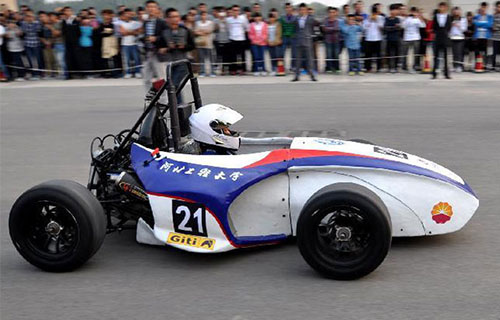

NANJING -- The agreement between China and Singapore to upgrade bilateral ties and cooperation has provided institutional support for both sides to explore smart city construction in a co-developed Suzhou industrial park, analysts say.
According to the memorandum of understanding signed at the 10th China-Singapore Joint Council for Bilateral Cooperation meeting on Tuesday in Singapore, IE Singapore, the trade promotion agency of Singapore, the Infocomm Development Authority of Singapore and the Suzhou Industrial Park Administrative Committee will choose suitable districts in Singapore and Suzhou Industrial Park for a pilot smart city project.
Under this initiative, Suzhou Industrial Park, the flagship Sino-Singapore cooperation project launched 19 years ago, will share the experiences of Singapore in developing smart cities.
A concept originally invented by IBM, "smart city" refers to cities of the future where computing technology will be used to improve efficiency of infrastructure and public services.
After launching a plan in 2006 to transform itself into a "smart" nation by 2015, Singapore has achieved cutting edge development of information technologies.
Many of the country's traditional sectors, such as hospitality, tourism, healthcare, education and logistics, have been transformed by information technology.
By contrast, China didn't officially start construction of smart cities until late last year. So far, there have been 193 test sites in China for smart city construction, including the Suzhou Industrial Park.
Zhang Dongchi, chief of the Science and Technology Development Bureau of the Administrative Committee of the Suzhou Industrial Park, said that the agreement will enable China to better learn from Singapore's experiences.
The agreement would allow the park to borrow from the first-hand experiences of a twin site in Singapore to propel the local experiment, he said.
Zhang said the park had borrowed from the experiences of Singapore in making its own smart city layout. It had also followed the example of Singapore and established a geographic information database, which will help local authorities make best use of land resources.
"We have been very impressed by Singapore's innovations, especially the Singaporean government's commitment to supporting corporate research and development," said Zhang.
After years of cooperation with Singapore, Zhang said China has realized that to facilitate technical innovation and industrialization of new technologies, the government must create a favorable market environment and protect intellectual property to attract more venture capital firms and people with expertise.
Because the core technologies for building smart cities involve massive data collection and data processing, Zhang expected the enthusiasm for smart city construction would inspire more companies to invest in development and use of software.
He said the park's management committee will fully respect the market, encourage corporate research and development within the complex and procure software that is tailor-made to improve public services.
Li Changyuan, chief of the Information Department of the Science and Development Bureau of the Park's management committee, said that cloud computing technology is particularly important for effective management of smart cities, which requires the processing of a large volume of real-time data from diverse public and private sources.
 Robots kick off football match in Hefei
Robots kick off football match in Hefei
 Aerobatic team prepare for Aviation Convention
Aerobatic team prepare for Aviation Convention
 China Suzhou Electronic Manufacturer Exposition kicks off
China Suzhou Electronic Manufacturer Exposition kicks off
 'Squid beauty' and her profitable BBQ store
'Squid beauty' and her profitable BBQ store
 A day in the life of a car model
A day in the life of a car model
 Vintage cars gather in downtown Beijing
Vintage cars gather in downtown Beijing
 Asia Bike Trade Show kicks off in Nanjing
Asia Bike Trade Show kicks off in Nanjing
 Student makes race car for 4th Formula SAE of China
Student makes race car for 4th Formula SAE of China